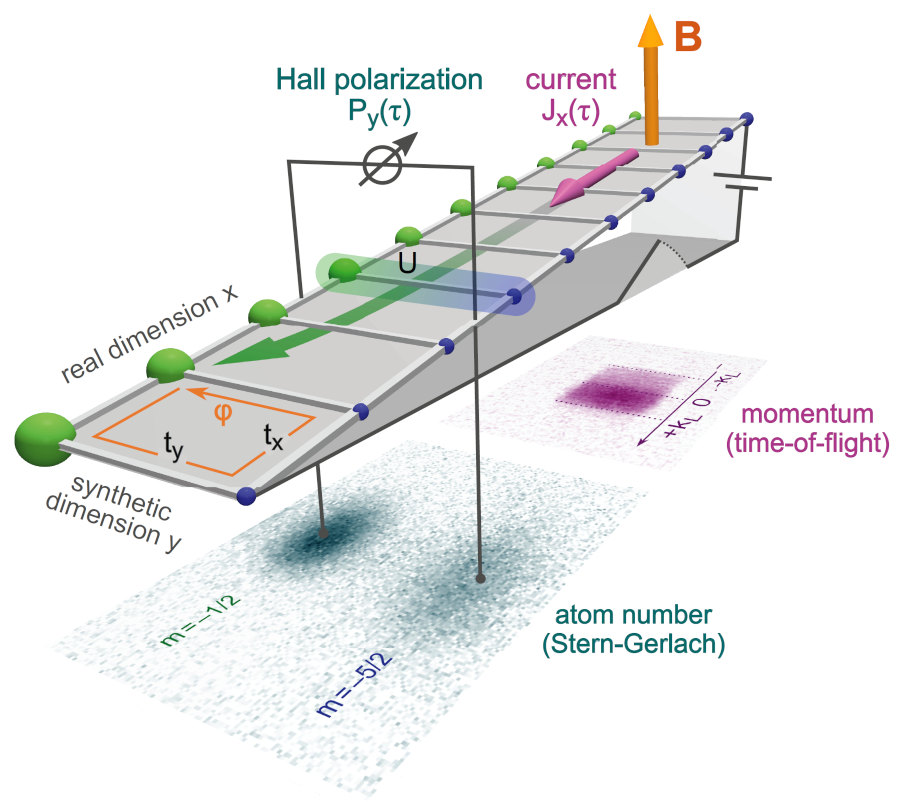 |
The Hall effect, which originates from the motion of charged particles in magnetic fields, has deep consequences for the description of materials, extending far beyond condensed matter. Understanding such an effect in interacting systems represents a fundamental challenge, even for small magnetic fields. In this work, we used an atomic quantum simulator in which we tracked the motion of ultracold fermions in two-leg ribbons threaded by artificial magnetic fields. Through controllable quench dynamics, we measured the Hall response for a range of synthetic tunneling and atomic interaction strengths. We unveil a universal interaction-independent behavior above an interaction threshold, in agreement with theoretical analyses. The ability to reach hard-to-compute regimes demonstrates the power of quantum simulation to describe strongly correlated topological states of matter. T.-W. Zhou et al. |


Two electrons are better than one... In the Yb lab we produce Bose-Einstein condensates and degenerate Fermi gases of ytterbium atoms. These atoms offer metastable electronic states, ultranarrow clock transitions, multicomponent fermions with SU(N) interactions: a whole range of experimental tools that allow new possibilities for quantum simulation and quantum information processing.
